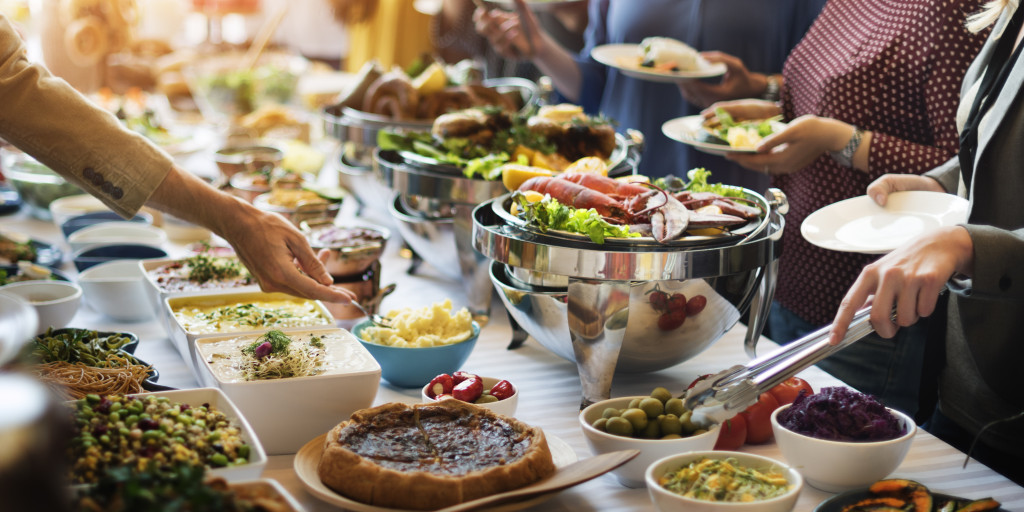Providing food services is a big responsibility. You can be held liable if anything goes awry, and you might not have a lot of legal recourse if anyone suffers from food poisoning or other untoward things due to unsafe and unhealthy practices. Customers are well within their rights to pursue legal action if they find themselves experiencing negative effects due to poor food service.
If you are thinking of starting a catering service during the pandemic, here are some food health and safety pointers to remember.
COVID-19 and food
But first, here are some things you need to know about COVID-19 and the virus potentially being transmitted through food:
- According to the United States Food and Drugs Administration (FDA), no evidence suggests that food packaging or the food itself can transmit the virus that causes the COVID-19 disease.
- It is unlikely for food to be contaminated with the novel coronavirus while it’s being prepared, packed, and delivered.
- Since the virus is largely transmitted through person-to-person interaction and contact, your customers are more likely to contract the virus through your delivery guy or rider.
Now that we have busted some myths about contracting the virus through food or food packaging, here are some pointers to remember when it comes to keeping things safe and healthy in your catering business.
Know the basic food health and safety guidelines
No matter how big or small your catering service business is, you need to practice the health and safety guidelines put forth by the FDA and the U.S. Centers for Disease Control and Prevention (CDC). Here are the most fundamental ones you and your staff need to take to heart:
- Manage the health and wellness of your employees, even contracted workers. If any of them feel at all under the weather, tell them not to come to work. If anyone comes to work sick, send them home as soon as possible. Encourage everyone to get vaccinated. Follow the CDC’s guidelines for quarantine and self-isolation if anyone finds themselves exposed to the virus.
- Properly disinfect and clean equipment, workspaces, and other high-touch surfaces in your work kitchen and delivery vehicle.
- Make sure everyone is wearing the proper protective gear: Masks, hairnets, and gloves.
- Emphasize proper hand hygiene among your employees. Make sure everyone washes their hands for a minimum of twenty seconds, especially after going to the restroom, coughing, sneezing, and blowing their noses.
- Ensure that there is access to disinfecting alcohol everywhere in your workspace or kitchen.
Invest in high-quality materials and equipment

If you’re at the point in your business when you can invest in higher quality equipment, make sure to invest in equipment that is easy to clean and disinfect. Here are some examples:
- Invest in a RAM truck for sale. A bigger and more spacious one not only provides plenty of storage; it allows for proper social distancing, too.
- Opt for the countertop surface or material that’s easiest to disinfect. Some examples include quartz, laminate, granite, and other solid surfaces. Leave the tiles where they belong: In the 2000s.
Practice food safety
When it comes to food safety, remember the four key steps: clean, separate, cook, and chill. Cleaning is all about proper hand-washing. Separating ensures that your raw meats are adequately distanced from other ingredients, and cooking is about ensuring that you’re using the appropriate temperature using a food thermometer. Chilling is about promptly refrigerating foods and ingredients.
Encourage safe handling and delivery
Aside from ensuring that none of your staff members or delivery personnel come to work sick, here are the other safety pointers you need to remember in terms of safe handling and delivery:
- Stay up-to-the-minute on your state’s mask-wearing mandate and make sure that your delivery personnel is following it.
- Make a habit of following established food safety guidelines and practices for cross-contamination prevention, time and temperature control, hand-washing, and proper food storage.
- Make sure your employees wash their hands after every interaction with a customer. If water and soap are not readily available, ensure that everybody has a bottle of disinfecting alcohol or wipes in their person.
A food business is always a good idea because it’s an essential service — people will always need to eat regardless of the economy and the COVID-19 situation. There will always be a market for good, clean food. But it also comes with a lot of responsibility because it can cause serious health problems when done improperly. Practice food safety at all times to ensure that you always do right by your customers who place their trust in your company.

